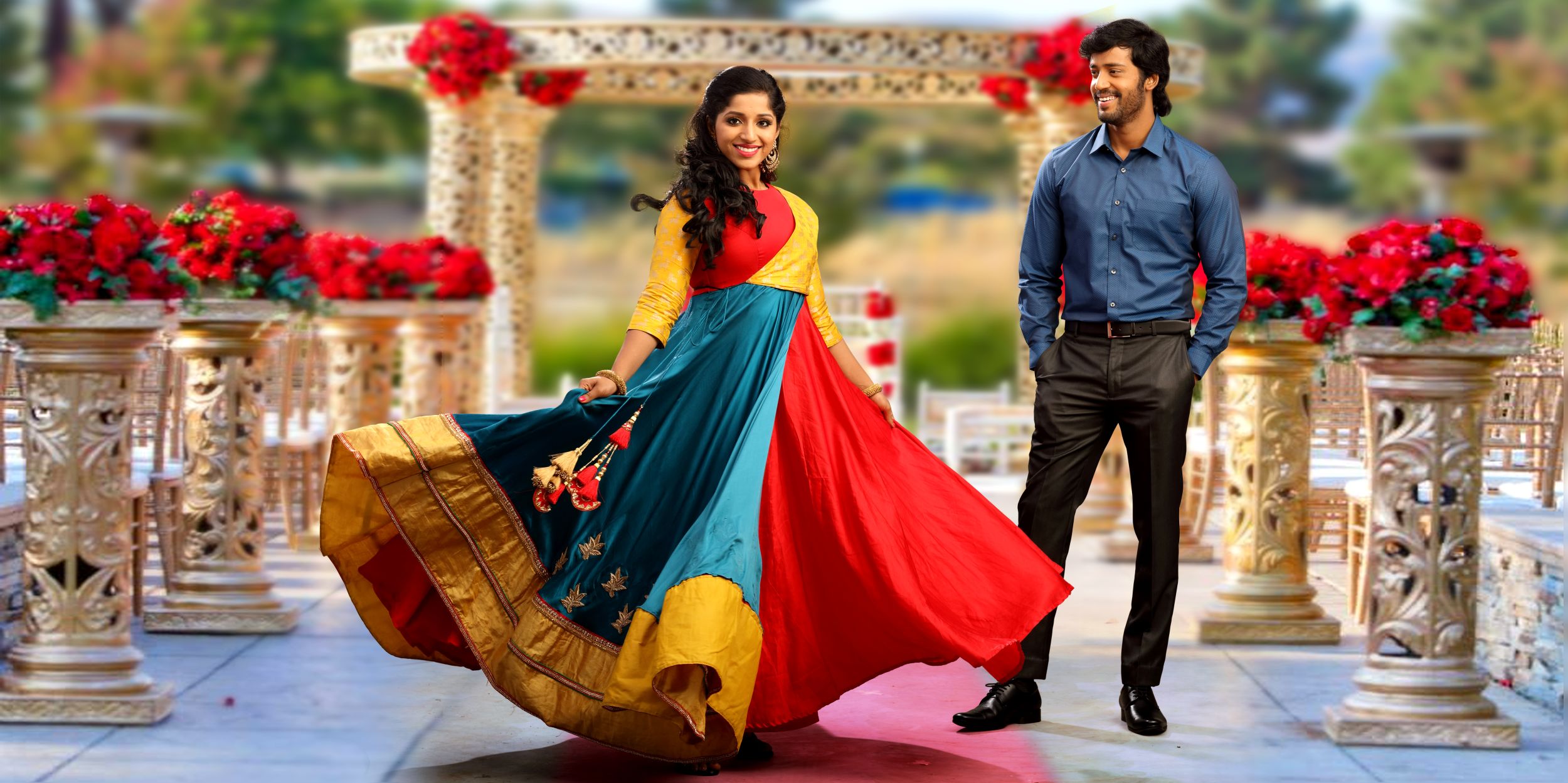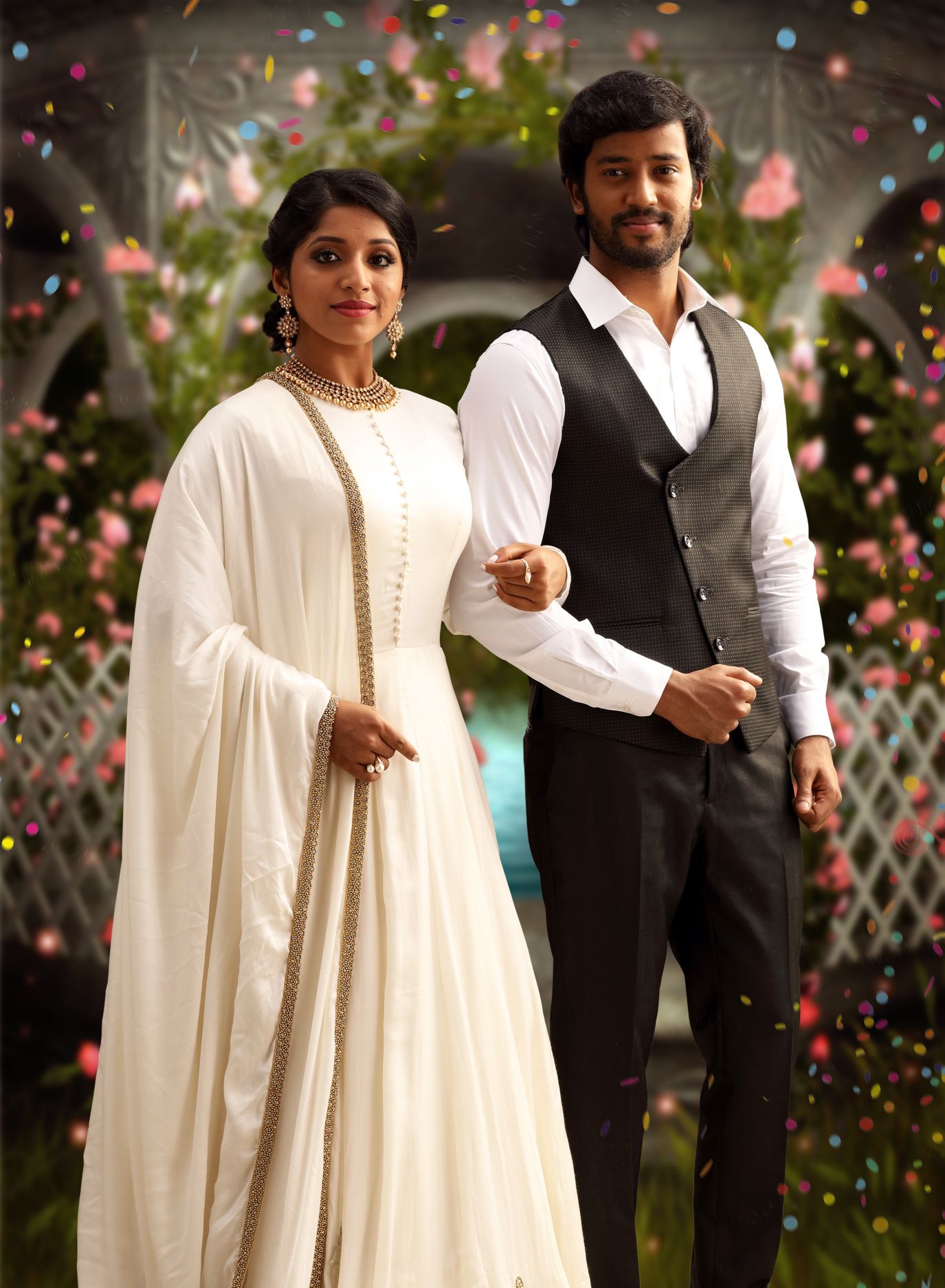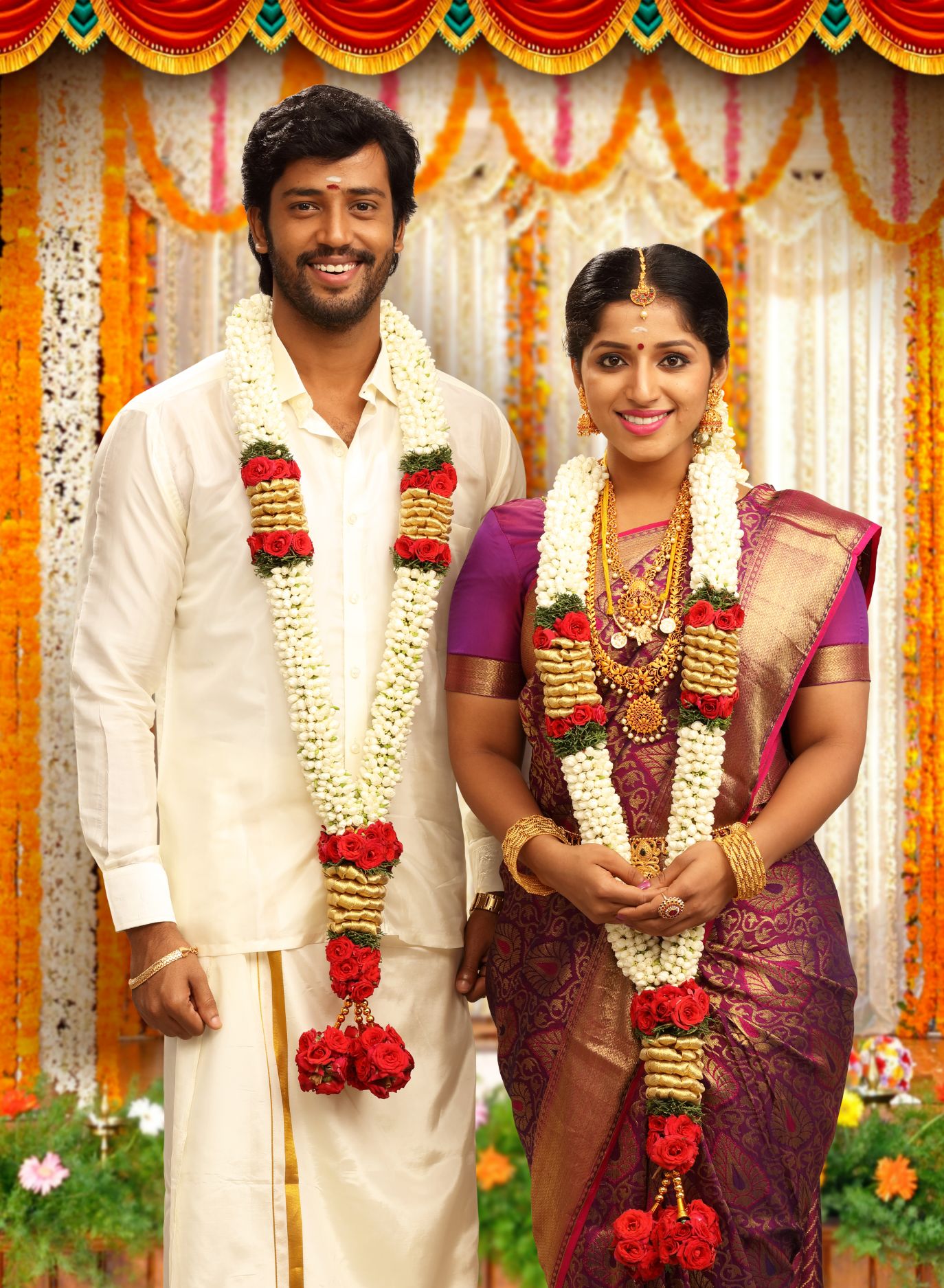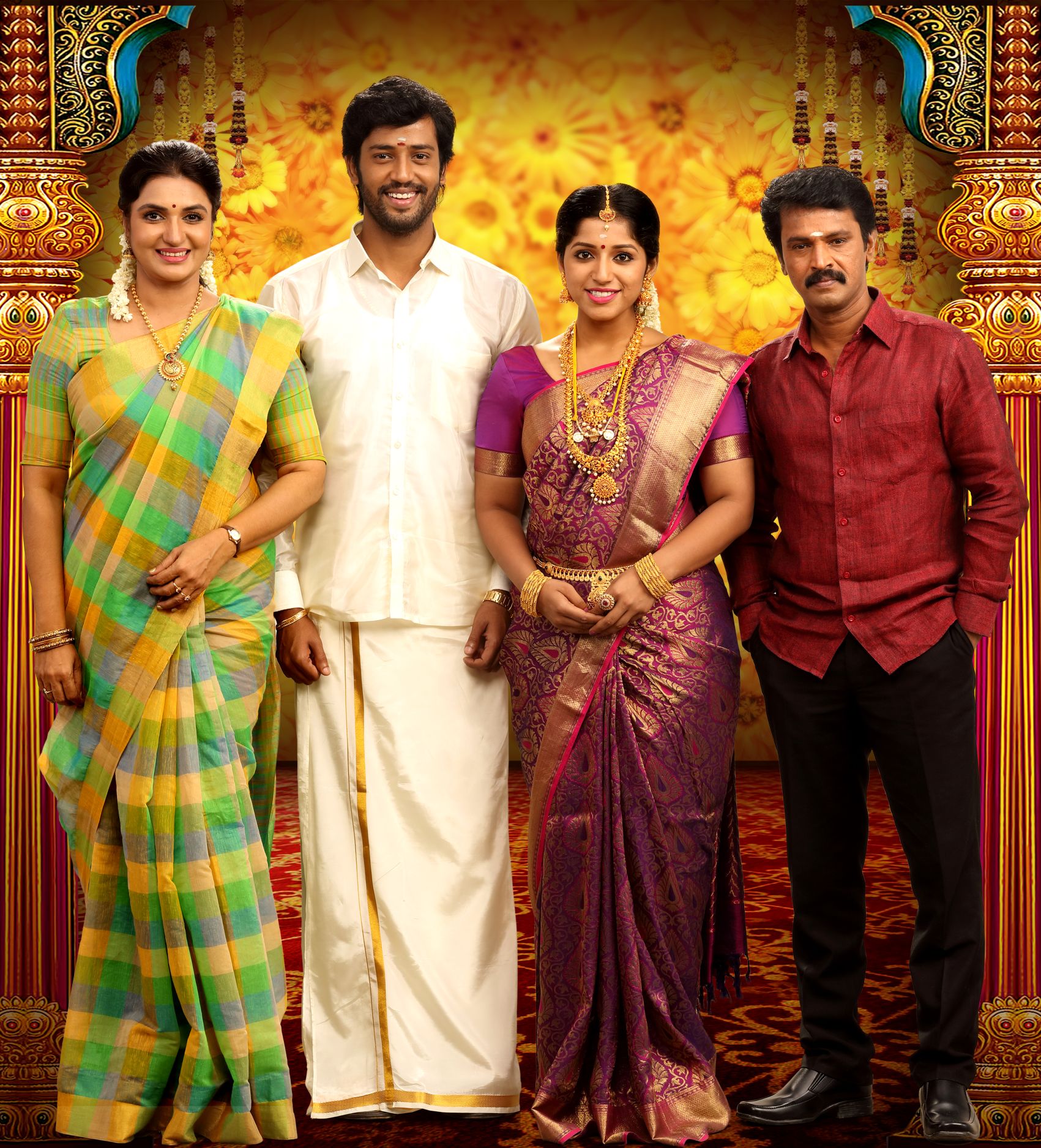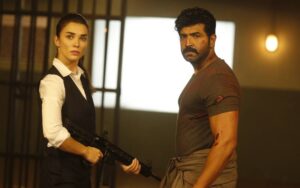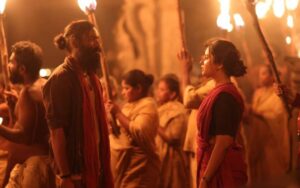Review: Thirumanam
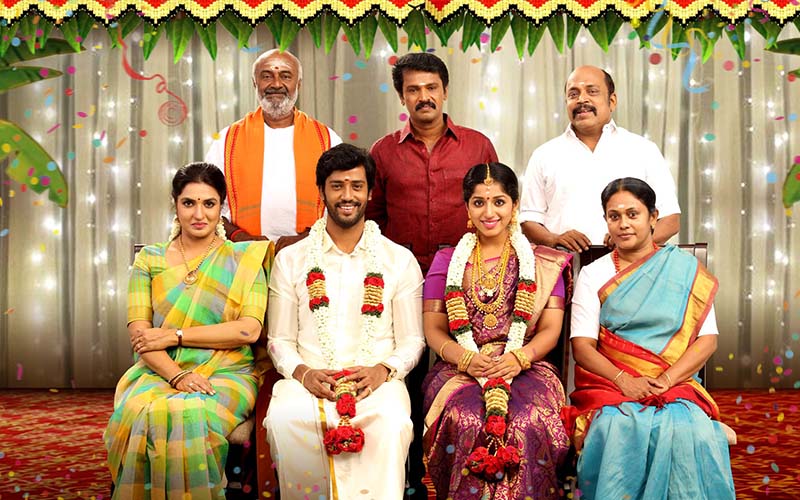
Film: Thirumanam
Director: Cheran
Cast: Cheran, Sukanya, Thambi Ramaiah, M S Baskar, Umapathy Ramaiah, Kavya Suresh, Jayaprakash, Manobala, Balasaravanan, Seema, Anupama
Production House: Preniss International
Producer: Premnath Chidambaram
CEO OF PRENISS INTERNATIONAL: Vellay Sethu
Cinematographer: Rajesh Yadav
Music Composer: Siddharth Vipin
Re-recording: Sabesh – Murali
Rating: 4 stars
Director Cheran, who is known for having given Indian cinema some dearly loved classics like Autograph and Thavamaai Thavamirundhu, makes a reasonably strong comeback with Thirumanam, an entertainer that, in the course of telling a beautiful story involving two families, looks to address some of the several issues that seem to be affecting the institution of marriage in this day and age.
Like almost all of Cheran’s films, this one too has been made with a great deal of social responsibility and care and is a film that can be enjoyed with the entire family.
Arivudainambi (Cheran), a sincere officer in the Income Tax department, has a younger sister Aadhiraiselvi (Kavya Suresh), who works as a sales girl in a furniture store. Arivudainambi is someone who is prudent and understands the significance of spending judiciously. His wisdom on saving and spending has stood Arivudainambi in good stead. In fact, that is what has been helping him lead a peaceful and content life with his sister, mother and uncle Kumaraguru (Thambi Ramaiah).
Aadhiraiselvi, a disciplined girl who is obedient to the elders in her family, falls in love with Mahesh ((Umapathy Ramaiah), a Radio Jockey by profession.
As it so happens, Mahesh is the brother of the well-to-do Manonmani (Sukanya), an independent single woman, who runs a boutique despite having a great deal of wealth. Manonmani dearly loves her younger brother Mahesh, for whose sake she parted ways with her husband several years ago. Manonmani and Mahesh’s family comprises of one other member apart from them and that happens to be their uncle, Arunachalam (M S Baskar). Both Manonmani and Arunachalam take great pride in their Zamindari family’s past and are very particular that their stature and status in society are maintained.
Both Aadhira and Mahesh express their desire to get married to the elders in their respective homes and the decision makers in the families of both the girl and the boy – i.e. Arivudainambi in Aadhira’s family and Manonmani from Mahesh’s side meet the prospective spouse of their sister/brother to find out if they are perfect match.
They also discreetly have background checks performed on the other family to find out if they are a respectable family and one worthy of having an alliance. With both families being satisfied on all counts, they firm up the alliance, much to the delight of the young couple.
But then, this is where the story actually starts. After the engagement, comes the topic of the wedding and where and how it should be performed. Soon, both families which initially seemed to get along well begin to find themselves disagreeing, and arguing on almost every single topic and decision. Insensitive words inadvertently blurted out in the heat of an argument bruise personal egos which result in a situation which almost spirals out of control.What happens next? Does the wedding happen? Thirumanam gives you the answer…
Cheran has this habit of making films that do not stop with just telling an entertaining story. He usually uses his films to encourage his audiences to engage in behaviour that is deemed socially and politically appropriate. For instance, in Autograph, he asked audiences to recall their past and in the process, revisit friends and family members with whom one had lost touch over time. In Thavamaai Thavamirundhu, he spoke highly of the sacrifices made by parents in general and fathers in particular, urging people to cherish the time they have with their parents. Similarly, through Thirumanam, Cheran showcases some of the most often witnessed problems in weddings today and offers some really valid and simple solutions which can go a long way in reducing friction between couples and their families. He urges his audiences to implement certain measures while performing weddings and highlights in the climax the advantages of implementing the measures he suggests.
All through the film, Cheran’s dialogues keep drawing your attention to the major problems plaguing marriages today. For instance, in a sequence in the film, Arivudainambi, during a conversation with a lawyer, gets to know that financial problems are one of the major reasons why weddings today are falling apart. Cheran does not stop with citing the problem. Through his film, he suggests a simple measure through which this problem can be resolved. It is so beautifully explained by him in the climax that one cannot but see the wisdom in the suggestion he is making. Almost instantly, one wonders how most others have missed out on what is so evident to him. No wonder then, the climax of the film is a winner!
The film has some really good performances. Nothing surprising about that considering the cast. Cheran as Arivudainambi does a neat job as usual. Strict, honest, fearless and upright on the one hand and concerned and compassionate on the other, Cheran plays his role as both a responsible brother and a sincere Income Tax officer to perfection.
Sukanya, who is being seen on the Tamil screen after a long time, proves that she has not lost her touch even one bit and comes up with an impressive performance as Manonmani. Distrustful of men, Manonmani is every bit the adamant, proud, modern woman on the one hand and a doting sister on the other.
The next two artistes are heavyweights in the world of acting and their performances add a great deal of value to the film as a whole. Thambi Ramaiah as Kumaraguru and M S Baskar as Arunachalam do an outstanding job as usual. Both veterans come up with measured performances that liven up proceedings and help the film win the admiration of the audiences. This apart, Bala Saravanan as driver Saravanan, Jeyaprakash as Pon Vijayakumar and Manobala as Narasimhachari also make their performances count.
Both the lead actors more or less deliver what is expected of them. Kavya Suresh as Aadhiraiselvi and Umapathy Ramaiah as Mahesh come up with just about good performances. However, both have a long way to go if they have to make their mark in the industry. Umapathy Ramaiah, in particular, has to work on toning down expressions and dialogue delivery.
Siddharth Vipin’s songs don’t make the cut. What does make the cut are the visuals of cinematographer Rajesh Yadav, who brings you some really classy shots all through the film. The tone, colour, lighting and angles used by Rajesh throughout the film is perfect. Speaking of angles, there is one particular aerial shot of a temple gopuram which deserves special mention. The artistic manner in which he captures the beauty of the gopuram, approaching it from a top-angle, is a treat to the eyes. Fantastic work, one must say!
Coming at a time when the institution of marriage is fast losing sheen and divorce rates are spiralling, Thirumanam makes a lot of sense. Cheran, in a style that is unique to him, takes upon himself the responsibility of pointing out to society where it is going wrong when it comes to conducting one of society’s most cherished events, weddings . Actually, films like Thirumanam make one feel thankful for socially responsible directors like Cheran.
In short, this film is a neat, clean entertainer that leaves you with a feel-good feeling and a bit of much-needed wisdom!


